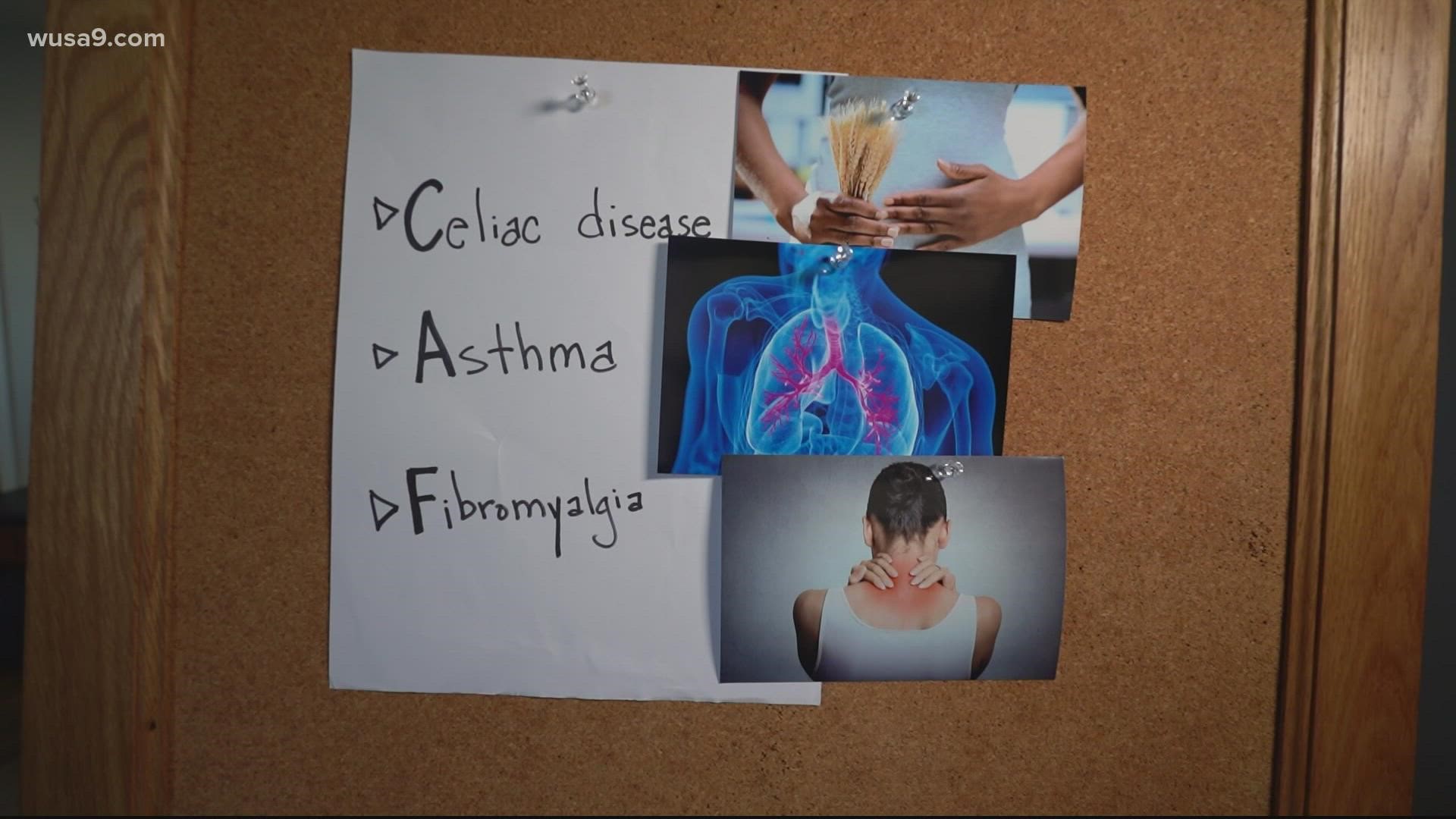BALTIMORE — Most people who have the coronavirus recover in a couple of weeks but some, even those with mild cases, continue to have symptoms for weeks or even months later.
But recent studies indicate that about 10% of people infected with COVID-19 will experience long-haul symptoms.
But what exactly are those symptoms, how are they being treated and who is helping these "long-haulers"?
THE QUESTION
What is long COVID?
THE ANSWER
It's having continued or new symptoms two to three months past your initial COVID-19 infection.
THE SOURCES
THE PROCESS
When you meet Ashley Williams, the term active feels like an understatement.
She's spent the last few years launching a tech start-up called Clymb. It uses software to teach children emotional intelligence and resilience.
"It was just an issue close to my heart," Williams said. "You know, I love those kids. I love young people. So, at some point, I resigned from my job. And I said, you know, I've got to figure this out."
Ironically, emotional intelligence was a skill set she put to the test in March 2020.
"I'm living my life and then all of a sudden I can't get out of the bed,” she said.
The world had just heard about a virus first discovered a world away and Williams developed peculiar and severe symptoms.
"I didn't want to get out of bed. I just felt not well, I didn't have a fever. I had some digestive issues, a really bad headache and it sort of spiraled," Williams said.
Her family took her to Johns Hopkins Hospital. It's one of the few places in early 2020 that could test for COVID-19.
"I found out that I had this virus and it was like a really big deal," she said. "At the time, you could, when people were going into the emergency rooms, they were not necessarily leaving out of them."
Williams went home to start her recovery and eventually tested negative but something wasn't right.
“I was chronically lethargic. I had incredible, incredibly bad brain fog, you know, just difficult," she explained. "My body would be wracked with physical pain, I would have pain that was sort of radiate through my legs and my fingers, my joints ate. Sometimes if I ate, just I would vomit, or I would get ill."
Ashley experienced what doctors now refer to as long COVID.
The World Health Organization defines long COVID as a condition that “occurs in individuals with a history of probable or confirmed SARS-CoV-2 infection, usually three months from the onset of COVID-19 with symptoms that last for at least two months and cannot be explained by an alternative diagnosis.”
The CDC agrees and says most people commonly report experiencing different combinations of the following symptoms:
- Difficulty breathing or shortness of breath
- Tiredness or fatigue
- Symptoms that get worse after physical or mental activities
- Difficulty thinking or concentrating aka "brain fog”
- Cough
- Chest or stomach pain
- Headache
- Fast-beating or pounding heart
- Joint or muscle pain
- Pins-and-needles feeling
- Diarrhea
- Sleep problems
- Fever
- Dizziness on standing
- Rash
- Mood changes
- Change in smell or taste
- Changes in menstrual period cycles
Dr. Priva Duggal is an Epidemiologist at the Johns Hopkins Bloomberg School of Public Health.
For the last two years, like the rest of the research science community, she and her colleagues have studied COVID and agree the most commons symptom is fatigue.
"Early on, we also started to see people reporting symptoms that were long-term," Duggal said. "So that was another question, are there a lot of people really having long-term symptoms? Can we try to answer some of those questions? Can we get at it?"
That’s when they came up with the idea to do the Johns Hopkins COVID Long Study. Participation includes a one-time, 10-15 minute survey. It's a simple online-based questionnaire that anyone can take.
Duggal said their goal is to get 25,000 people to participate so they have a broader idea of what COVID long haulers experience.
Williams says after seeing her doctors, she found out she developed Celiac disease, moderate asthma and fibromyalgia.
"So long term, we hope to be able to provide some insight as to what's actually happening. If we can get understand the mechanism, then we can target it for treatment, we can target it for therapies," she said. "I saw a study that said about a third of people who get COVID end up having long haulers, that's not a small number of people."
Despite the symptoms, Williams says she is back on track, working tirelessly on her emotional health care startup.
"My hope is that through the participation of the study, that information comes forward that can help that third of people, so people won't have to suffer in the way that I suffered," Williams explained.

